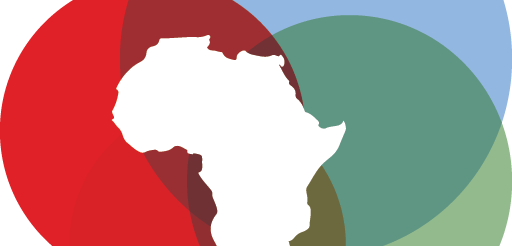Women Bridging the Gap of Change and Innovation in Africa

By
Mnena Abuku
Women
in Africa have faced a diversity of struggles in their efforts toward
sustainable development. This is largely because globalisation has brought more
burdens upon them without improving their status, resulting in many increasingly
being the breadwinners and heads of households. As an Open AIR Queen Elizabeth
Scholar – Advanced Scholar, I am currently conducting research into the various
skills involved in indigenous entrepreneurship and innovation in rural Kenya
and Nigeria. While this research has only just begun, even now patterns are
beginning to emerge and differences abound. This is only part one of what I
hope will be several blog posts on both my research, and my personal
experiences as an Open AIR QES Fellow.
Women’s
Contributions
Women,
over the centuries, have made immense contributions toward the survival and
harmony of their families and communities, however, these noble contributions
have earned them little respect and no recognition in terms of their status.
Women are often treated with lower status in their homes and in their communities,
preventing them from having a voice in decision-making processes both within
and outside of the home. They also face several challenges, including lack of
education, lack of employment, early marriage, and various forms of gender-based
violence, and harmful norms. Despite all of these challenges, African women
continue to show resilience through using the skills available to them to live
and sustain their communities.
Because
of women’s contributions, there have been significant transformations in Africa
in relation to the standard of living at the family level. Many homes have
improved through women’s contribution in their communities. The nature of work
and organisations has become more flexible and has led to the casualisation of
work and outsourcing. While most women in Nigeria have no formal education,
they have a diversity of skills and are able to be leaders in informal economic
activities, sometimes generating significant incomes that support many people. These
skills include such things as food processing, baking, beadwork, shoe making,
pottery, weaving, tie-dyeing, agriculture, and more. Women have visibly increased
their presence in the areas of entrepreneurship and innovation.
My Queen Elizabeth
Scholar Research
It
is on this premise that I have been inspired to conduct my Open AIR research,
looking at the lives of African women, especially those in rural areas where
the level of poverty is much more pronounced compared to that in the urban
centres. My research particularly focuses on indigenous entrepreneurs and the
innovations these women have brought to their work. I am exploring the various
skills involved in indigenous entrepreneurship, doing a comparative study of
the innovations and products of women in rural Nigeria and rural Kenya. My research
also looks at how open collaboration could enhance the promotion of these
indigenous works.
Preliminary
Findings: Diversity
Through
the course of my research, I have been able to visit some three rural areas in
Kenya near Kisumu and two rural areas in Nigeria, in Tarka and Ushafa. Since I
am also Nigerian, the differences and similarities in Kenya have been
fascinating to me. For example, in one site I visited, Kazuri, a bead-making
centre by women, I have found that each piece is designed with a unique story
and is emblematic of the creativity and skill of these rural women. Their work
is a product of their environment, nature, ethnicity, and traditional stories.
Each piece is designed with a unique story, creativity, and personality. The
work is completely different from the beads produced in Nigeria.
In
the area of agriculture, I have also been finding that the role of women is
different between Kenya and Nigeria. In the areas of rural Kenya where I have
been conducting my research, there is no distinction between farming and the planting
of crops. Women are extensively involved in agriculture. In Kenya, women will
plant whatever crops they are capable of working on. This is not the case in the
rural areas of Nigeria such as Benue, Oyo, Sokoto, Kano, Plateau, Niger, Cross
River, and Enugu, just to mention a few. In these places, certain crops are
seen to be men’s work, that is, farming associated or dedicated to men. Such farming
involves the whole process, from clearing the ground, to tiling the soil, to
harvesting the crops. This process is the full occupation of the men. For
instance, in Benue State, fruit trees are solely planted and owned by men.
Oranges, mangoes, and cashews are planted in large orchards, with certain seeds
also being considered as men’s domain. Women, on the other hand, are mainly
known to plant vegetables, while men are involved in the vegetable farming.
These vegetables are later processed by men into various products for sale and
consumption.
These
are my initial findings / observations thus far. I hope to meet with the women
again soon to learn more about their work. Furthermore, I look forward to
continuing to explore the innovative ways women’s work in Africa has
contributed to sustainable development.
